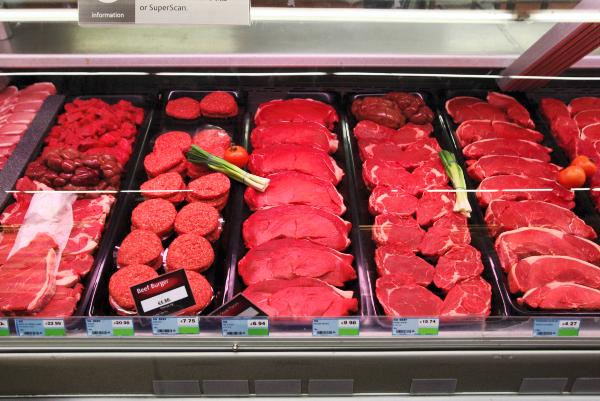Sainsbury’s has reported its first annual loss in a decade as the intense price war between supermarkets in the UK continues. The UK’s third largest retailer reported a loss before tax of £72m (€97m) for the year ending March 2015, compared with pre-tax profits of £898m the previous year.
Sainsbury’s profits were in the red thanks to a £628m (€847m) impairment charge the retailer incurred in November when it wrote off the value of 40 existing stores and scrapped plans to build an additional 40 stores.
Excluding one-off costs, underlying pre-tax profits were back 14.7% to £681m (€918m) as total group sales declined by 0.7% to £23.8bn (€32.1bn). Like for like sales, at stores open more than a year, fell by 1.9% as a result of food price deflation and changing shopping habits.
To better compete with German discounters Lidl and Aldi, Sainsbury’s said it had invested £50m in the past six months reducing prices in more than 1,100 products and planned to spend a further £150m this year.
Sainsbury’s said it would “continue to invest in price to remain competitive in the market” after its market share has fallen by 25 basis points over the past year to 16.5%.
Sainsbury’s announcement follows losses of £792m (€1.1bn) for Morrisons and £6.4bn (€8.6bn) for Tesco, the worst performance in its 96-year history and one of the worst in UK corporate history.
The UK’s “Big Four” supermarkets, Tesco, Asda, Sainsbury’s and Morrisons, are losing market share to the German discounters Aldi and Lidl at a time when British shoppers are switching from a weekly shop to more frequent, convenient shopping resulting in smaller basket sizes.
With all the UK supermarkets fighting for market share through aggressive price reductions this does nothing to ease the concerns of suppliers and farmers.






 This is a subscriber-only article
This is a subscriber-only article










SHARING OPTIONS: